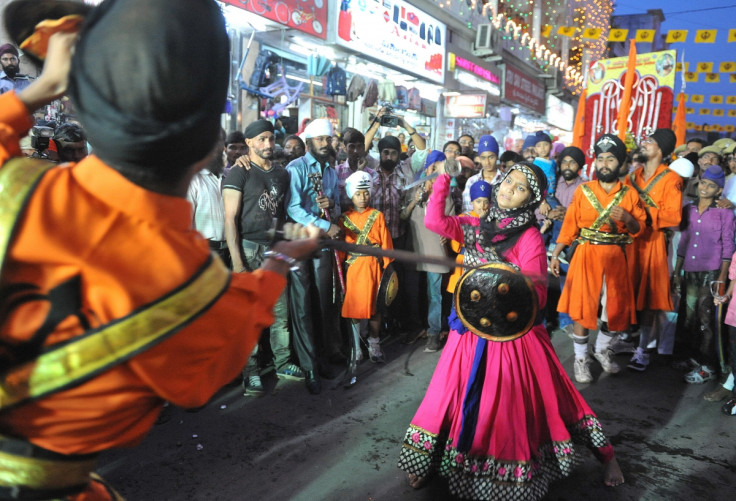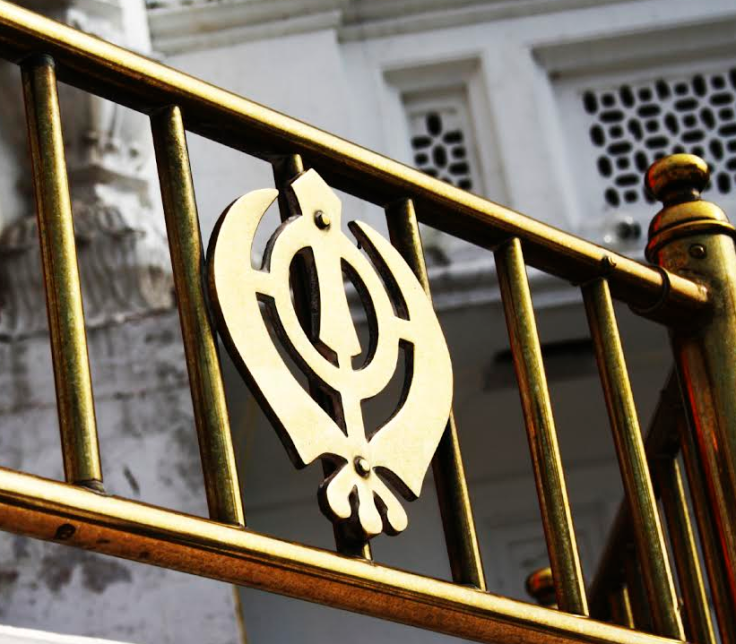Don't distort the Khalistan message - Britain has nothing to fear from Sikhs

It seems far too trivial a matter to have moved beyond the confines of the Sikh community to become a wider news story. A flag on display at an event in Birmingham to celebrate Vaisakhi – the main Sikh festival – caused some controversy by depicting a machine gun alongside the slogan 'Khalistan Zindabad'.
According to local Labour MP Khalid Mahmood, this was a reference to the Khalistan Zindabad Force, a suspected terrorist group banned in both India and the EU.
But he really does need to check his facts. 'Khalistan Zinzabad' is a political slogan meaning 'Long Live Khalistan', the independent Sikh homeland that many people have campaigned for decades to create. The phrase was widely uttered in India long before the existence of this particular militant group – one I must admit I've never heard of.
The gun, as Sikh leaders have been quick to point out, is an internationally recognised symbol for resistance, revolution and liberation. It is the expression of a feeling, rather than a sign of affiliation with a particular organisation – and it is certainly not a call to bring armed terror to the streets of the West Midlands.
Anyone who has ever visited a Sikh gurdwara or event in Britain will not be surprised by such imagery or political sentiment. Slogans and banners supporting Khalistan – and images forming a tribute to those who have lost their lives in the struggle for its creation – are rarely far from view.

The symbol of the Sikh faith itself – the Khanda – consists of three swords arranged around a circle. Yet no-one lives in fear of being attacked by a Sikh. Indeed, Sikhs are usually praised for being among the best-integrated and most law-abiding ethnic communities in Britain.
This makes the issue of the Birmingham flag a very curious one, especially since not a single person apparently complained about its appearance at the event itself.
I believe the matter can be explained almost entirely by the intervention of Mahmood in the local media. He seems to have created a furore out of nothing. By calling for Sikh and local authorities to make sure an incident that caused absolutely no offence is not repeated in future, he perhaps reveals more about his own concerns than anyone else's.
To me, it is impossible to escape the conclusion that Mahmood spotted an opportunity to deflect attention from Muslims by throwing a terrorist slur at another religious group.
To be fair to Mahmood, he is under a huge amount of pressure as one of Britain's few Muslim MPs. His community is rarely out of the news, usually for the wrong reasons, and he has been exemplary in his efforts to condemn and counter Islamic fundamentalism in the UK.
But that is no excuse for linking Sikhs in Birmingham to extremism and terrorism. Other Britons do not look upon Sikhs with even the slightest suspicion or fear, and it is irresponsible to create such negative feeling. It was an entirely unfounded allegation, and he should apologise immediately.

That is not to say that the Khalistan movement, and its past flirtation with violent tactics, does not still loom large in the consciousness of Britain's Sikhs. The issue continues to be the focus of great debate.
I, for one, have no sympathy with the Khalistan cause. I realise this may place me in a minority among British Sikhs, but I believe it is better to keep faith in the original idea of India as created by Mahatma Gandhi and Jawaharlal Nehru – a multicultural and federal nation under the protection of a secular and democratic constitution.
The genuine grievances that arise in the country for Sikhs come when political leaders abandon this idea, such as when Nehru's daughter Indira Gandhi suspended democratic government in the 1970s and sent the army to storm Sikhism's holiest site, the Golden Temple of Amritsar, in 1984.
Despite the various problems there was, until recently, a Sikh Prime Minister of India, and Sikhs continue to hold a hugely disproportionate share of national wealth and influence, while making up just 2% of the population.
It is the pure idea of India, not Khalistan, that should be fought for, and I am heartened that this view is shared by my relatives in Delhi – which was the scene of the most notorious massacre of Sikhs, by Hindu mobs, in retaliation for the assassination of Indira Gandhi in 1984.
But whatever the differences of opinion in the community, there are very few Sikhs who seriously believe they will live to see the creation of Khalistan. The more militant parts of the movement were ruthlessly and brutally purged by Indian security forces in the 1980s and 1990s, and I see little support for the cause whenever I visit the country.
Most Indian Sikhs seem willing to place their faith in the opportunities afforded by the country's rapidly growing economy, leaving the greatest remaining sympathy for Khalistan among the expat community in Britain and Canada.
They hold on to the idea of Khalistan as a dream, but it is not one that many people actively pursue. There is no great political pressure and there is no organisation or armament of violent militant groups.
Britain has nothing to fear from its Sikh population. So politicians like Khalid Mahmood should perhaps focus their efforts on those who do actually present a clear and present threat to the safety of British citizens.
Harcharan Chandhoke writes on issues affecting the Indian diaspora
© Copyright IBTimes 2025. All rights reserved.






















